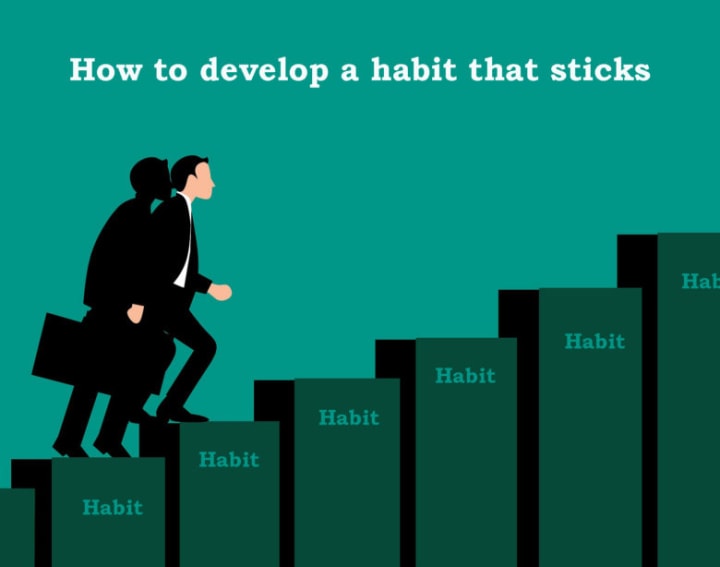What is this " 21 days" habit theory?
Have you tried this?

Well, as I said that 21-days theory is something which you might have heard or overheard or must have read somewhere but never practiced. Might be because you didn't find the reason to do so or must have found it "useless".
So how about trying to know more about this "useless" practice and get cleared whether it's actually useless or worth giving a try.
Who gave birth to this theory?
The person who established this 21 days theory was Maxwell Maltz, a plastic surgeon in the 1950s. He discovered that a patient who had, for example, a face operation, would need 21 days to get used to seeing their new face. As well as when a patient had a leg amputated, the person would sense a phantom limb for about 21 days before becoming accustomed to the new situation. He came to the conclusion that “these, and many other commonly observed phenomena tend to show that it requires a minimum of about 21 days for an old mental image to dissolve and a new one to jell.” Word spread and soon, the quote was shortened to: “It takes 21 days to form a new habit”…a term which stuck.
So, should we believe that 21 days theory is accurate?
We cannot promise that because there are studies that have proved this theory wrong. One of them took place in the European Journal of Social Psychology and there, researchers analyzed the habits of 96 people over 12 weeks. On average, it is said that a habit takes around 2 months to become an automatic behavior – 66 days to be exact. And in some cases, it can take up to eight months and so on, depending upon the task.
Another research happened at University College London, 96 participants were asked to choose an everyday behavior that they wanted to turn into a habit. They all chose something they didn’t already do that could be repeated every day; many were health-related: people chose things like “eating a piece of fruit with lunch” and “running for 15 minutes after dinner.” Each of the 84 days of the study, they logged into a website and reported whether or not they’d carried out the behavior, as well as how automatic the behavior had felt and so on. Every research has its positive and negative sides.
Then how to develop a habit?

There is a very famous saying, Rome was not built in one day and that is true but that doesn't mean you shouldn't start building it up. You need to take baby steps for that. When you start putting a brick by brick only then you can expect a wonderful city like Rome and the same is the case in building habits.
If you want your habits to stay for a longer time or lifetime, you shouldn't be relying on 21 days theory completely. You should just keep on working and working, till the time you achieve your destination and when I say keep on working, that includes proper planning which should be followed from day one. Also, don't forget, you are a human and you deserve a relaxed mind as well. Take care of your health as well.
What's my take:
Well, the simple answer to this complicated question is, believe in your experience. To some people, might be 21-day theory worked, and for some people, it might not. If it's a simple thing chances are higher that it might turn into a habit after 21 days but if it's something harder, the possibility of taking a long time is higher. I would suggest you give this theory a shot.

About the Creator
Ayushi Sharma
Writer and a fashion designer who believes in exploring and learning.
Apart from Vocal, you can follow my work on
1.Wordpress: www.staycurious.co.in
2.Instagram: https://www.instagram.com/tofthoughts/?hl=en






Comments
There are no comments for this story
Be the first to respond and start the conversation.